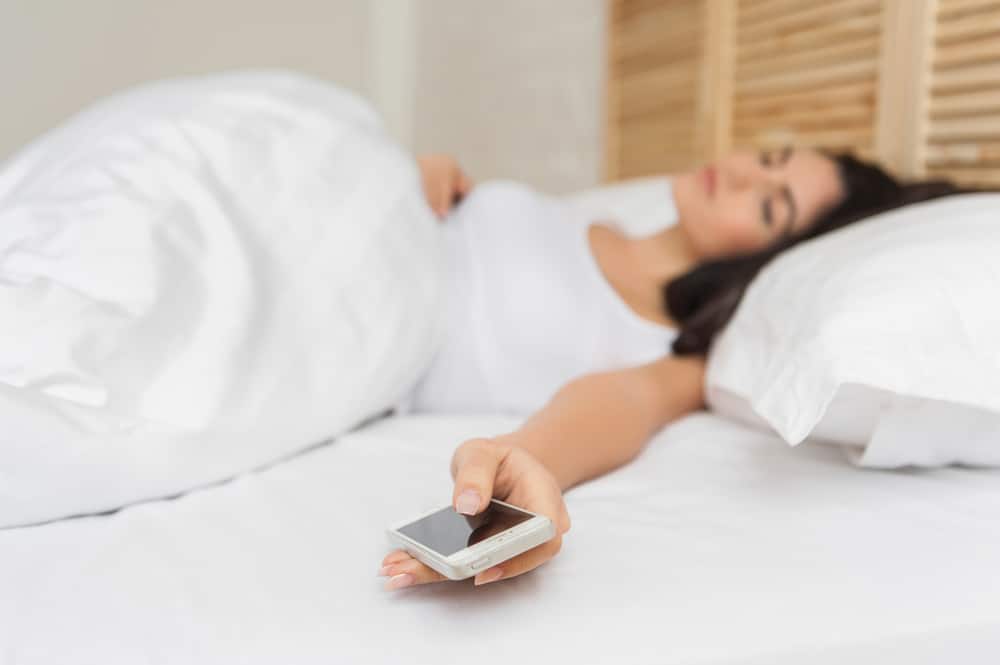Breaking smartphone attachment before it's too late

Who is responsible for breaking our attachment to smartphones and overuse of social media? Is it the government that may pass legislation that has no teeth? Or, is it technology companies that are responsible to shareholders and have a financial incentive to keep us attached? The answer is neither. We -- you and I -- must take the reins on establishing a tech/life balance.
This is especially true for members of my generation, who believe that their use of smartphones and social media is deleterious and will continue to be so in the future. In a recent survey of over 1,000 Millennials from BOLDFISH, 81.1 percent of respondents agreed or strongly agreed that their generation has a problem with smartphone overuse. On a scale of 0-100, respondents rated their concern of social media's impact on future generations at 71.
Smartphone attachment is so strong that 80 percent of Millennials practically spoon their smartphones. Even worse, they're stressed by notifications and are using their smartphones at inappropriate times. Is using our smartphones too much worth damaging relationships with family, significant others, and friends?
Millennials don't believe so, and have repeatedly tried to reduce their smartphone and social media use. Unfortunately, the problem persists. How can we course correct? Here are a few recommendations:
Goodbye Social Notifications
Millennials receive so many notifications, that they become unmanageable. In fact, 37.5 percent of respondents feel overwhelmed by notifications one or more times a day. There's an expectation to respond that strengthens this sentiment. 44.9 percent of respondents believe that people expect them to respond immediately over 60 percent of the time, which causes feelings of stress.
How is this avoidable? Turn off all social media notifications. Millennials need to control their FOMO -- fear of missing out -- and understand that we don't need to be constantly plugged in. Not every text, Facebook, or Tweet requires quick action.
Do Not Disturb
Would you check your smartphone on a date? How about in a movie theater after the movie starts? Even at a funeral? 66.1 percent of respondents have used their smartphones in at least one of these situations-at a moment that others would consider inappropriate.
We should consider using Do Not Disturb to avoid using our smartphones at an inopportune time. But, let's go beyond simply muting all notifications and calls. On an iPhone, we can customize who and when someone can reach us. On Android devices, we can establish who, when, and what form of communication can pass through when someone is trying to connect.
Out of Sight, Out of Mind
25.6 percent of Millennials keep their smartphones in bed with them, leading to increased feelings of attachment. 71 percent of respondents that sleep with their smartphones check it at least once every 15 minutes. We should keep our smartphones in another room when going to sleep. When doing so, we're working to reduce our attachment and free our minds from those buzzing notifications.
Finding a balance between our digital and analog lives is something that will be ever more necessary as society -- particularly Millennials -- continues to incorporate technology into our daily routines. There are no set rules to take back control from technology. But taking these steps will pull Millennials back from their magnetizing devices and protect the digital device users of the future.
Image Credit: Tatyana Chaiko / Shutterstock
 Jason Kingdon is founder and CEO of BOLDFISH, a digital wellness company. Kingdon’s mission is to help Millennials improve their tech/life balance and find peace. Prior to BOLDFISH, Kingdon served as a project analyst at Sinovation Ventures. He earned his bachelor of arts in philosophy from Columbia University.
Jason Kingdon is founder and CEO of BOLDFISH, a digital wellness company. Kingdon’s mission is to help Millennials improve their tech/life balance and find peace. Prior to BOLDFISH, Kingdon served as a project analyst at Sinovation Ventures. He earned his bachelor of arts in philosophy from Columbia University.